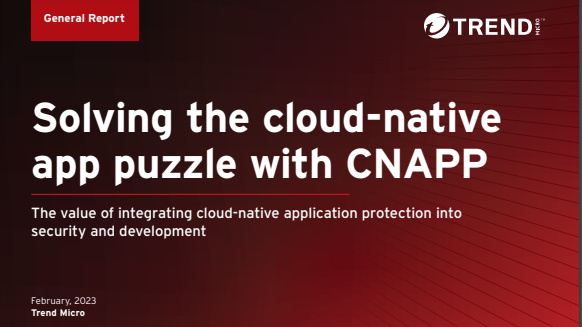Report: Businesses continue trend of wasting money on unused cloud resources
For the second year running, the vast majority of businesses continue to spend needlessly, with many citing overprovisioning as the cause


Sign up today and you will receive a free copy of our Future Focus 2025 report - the leading guidance on AI, cybersecurity and other IT challenges as per 700+ senior executives
You are now subscribed
Your newsletter sign-up was successful
Organizations are continuing to waste money on cloud resources that they do not require, with 50% admitting that overprovisioning of cloud resources was a major factor.
Idle or underused resources came just behind and a lack of skills was blamed by 43% of respondents to a survey.
Other factors included “temporary” cloud resources that are never ended, such as a service trialed by a customer that is never switched off, along with varying geographical costs resulting in more spending than expected.
The report from HashiCorp and Forrester, released this week, indicated the issue of overspending has not changed from last year’s figures.
Overprovisioning occurs when a customer reserves resources in the cloud, such as CPU or storage, but doesn’t actually use them.
RELATED RESOURCE

Solving the cloud-native app puzzle with CNAPP
The value of integrating cloud-native application protection into security and development
While overprovisioning may simply appear like bad management or a loss of administrative control at first glance, the increasingly complex nature of cloud tooling can lead to customers buying services that are not necessarily needed.
While it might be possible to dynamically allocate resources in some instances - serverless architecture is a good example - this can result in performance or capacity issues, meaning reserving resources in advance is often unavoidable.
Sign up today and you will receive a free copy of our Future Focus 2025 report - the leading guidance on AI, cybersecurity and other IT challenges as per 700+ senior executives
One solution to the challenge of overprovisioning is careful monitoring of actual usage in order to optimize cloud spend and gain visibility over one’s estate.
The adoption of best practices across an entire organization, such as using automation and infrastructure-as-code, can also cut down on overprovisioning through the implementation of well-defined processes around resource usage while also improving scalability.
HashiCorp’s report noted that the approach of adopting best practices also lends itself well to a multi-cloud environment. Almost all of the organizations surveyed that had done so said that multi-cloud was working well for them, or would be shortly.
The potential difficulties in adopting those practices should not be underestimated, though, the report read.
An issue that pervades the IT industry, 27% of respondents said skill shortages was one factor complicating the operationalization of multi-cloud in their organization. Siloed teams and a lack of training were also concerns.
Once best practices are in place, or well on the way, organizations are then well-placed to take advantage of savings by selecting services from a variety of vendors and avoid being locked-in to one particular cloud.
While avoidable cloud spend appears static compared to the previous year, the report concluded organizations that are further along the journey to the adoption of best cloud practices, including the creation of a platform team, reported a reduction in overprovisioned, idle, or underused resources as contributing factors.

Richard Speed is an expert in databases, DevOps and IT regulations and governance. He was previously a Staff Writer for ITPro, CloudPro and ChannelPro, before going freelance. He first joined Future in 2023 having worked as a reporter for The Register. He has also attended numerous domestic and international events, including Microsoft's Build and Ignite conferences and both US and EU KubeCons.
Prior to joining The Register, he spent a number of years working in IT in the pharmaceutical and financial sectors.
-
 Palo Alto Networks CEO hails ‘the end of identity silos’ as firm closes CyberArk acquisition
Palo Alto Networks CEO hails ‘the end of identity silos’ as firm closes CyberArk acquisitionNews Palo Alto Networks' CEO Nikesh Arora says the $25bn CyberArk acquisition heralds "the end of identity silos" for customers, enabling them to supercharge privileged access management.
-
 Google says hacker groups are using Gemini to augment attacks
Google says hacker groups are using Gemini to augment attacksNews Google Threat Intelligence Group has shut down repeated attempts to misuse the Gemini model family
-
 What Palo Alto Networks' $10bn deal with Google Cloud means for customers
What Palo Alto Networks' $10bn deal with Google Cloud means for customersNews The extension of an existing partnership between Palo Alto Networks and Google Cloud is designed to boost security amid rise in AI
-
 CEOs admit majority of cloud environments were ‘built by accident rather than design’ – and it’s coming back to haunt them
CEOs admit majority of cloud environments were ‘built by accident rather than design’ – and it’s coming back to haunt themNews Many enterprises rushed into the cloud without a clear end goal in mind, according to Kyndryl
-
 Google Cloud introduces ‘no-cost’ data transfers for UK, EU businesses
Google Cloud introduces ‘no-cost’ data transfers for UK, EU businessesNews Google Cloud's new Data Transfer Essentials service will allow enterprises to transfer data to alternative providers at no extra cost.
-
 UK enterprises regret going all-in on public cloud
UK enterprises regret going all-in on public cloudNews Data sovereignty, rising costs, and governance issues mean many IT decision-makers regret having made the move
-
 Cloud adoption isn’t all it’s cut out to be as enterprises report growing dissatisfaction
Cloud adoption isn’t all it’s cut out to be as enterprises report growing dissatisfactionNews New research from Gartner suggests a significant portion of enterprises will experience ‘dissatisfaction’ in their cloud journey in the coming years.
-
 Say goodbye to walled gardens, Oracle is doubling down on multi-cloud
Say goodbye to walled gardens, Oracle is doubling down on multi-cloudNews Oracle is still focused heavily on driving multi-cloud adoption, doubling down on a message that came out of Oracle CloudWorld 2024 in Las Vegas a few months ago.
-
 Overcoming DevOps challenges in multi-cloud environments
Overcoming DevOps challenges in multi-cloud environmentsIndustry Insights Multi-cloud architectures provide opportunities for growth and agility, but ensuring seamless, scalable, and secure operations remains a challenge
-
 The business value of Dell PowerFlex
The business value of Dell PowerFlexWhitepaper Minimize downtime and boost the productivity of IT staff with software-defined infrastructure